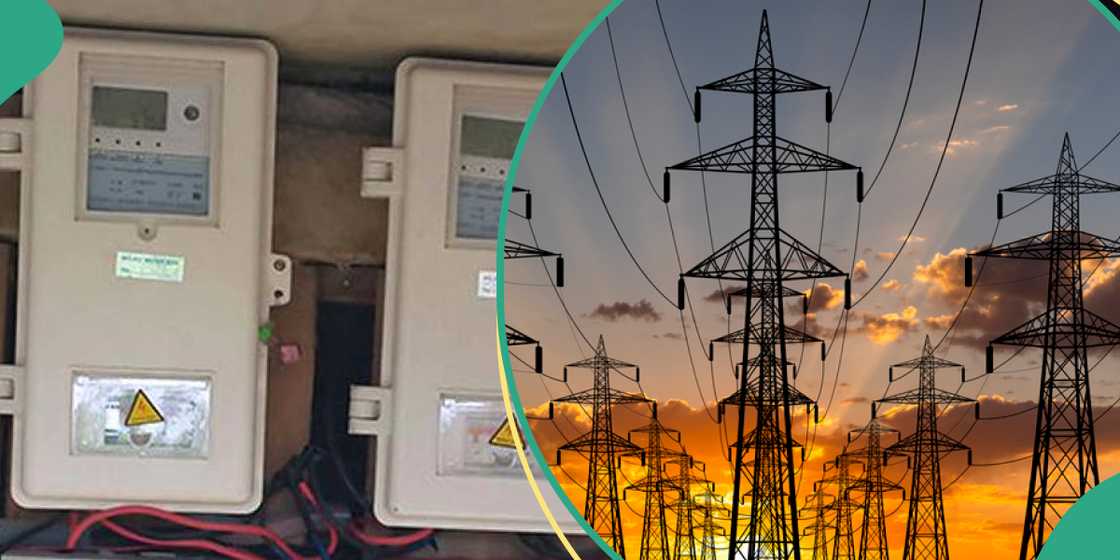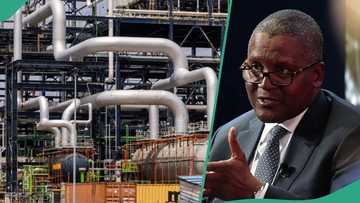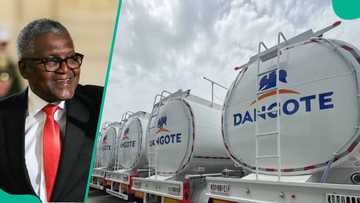Deji Adeleke’s 1,250MW Power Plant Ready But Not Operational Yet
- Deji Adeleke, Nigerian billionaire businessman, has decried government policies that seek to stifle investment in the power sector
- Adeleke, who is also the Pro-Chancellor of Adeleke University, disclosed that a whopping 1,250 megawatt of power he built is sitting idle in Ondo State
- The Nigerian billionaire stated the plant has the potential to transform the power sector, but it remains disconnected from the national grid
CHECK OUT: How to Start Earning with Copywriting in Just 7 Days – Even if You’re a Complete Beginner
Legit.ng’s Pascal Oparada has reported on tech, energy, stocks, investment and the economy for over a decade.
Deji Adeleke, businessman and Pro-Chancellor of Adeleke University, and father of Nigeria’s Afrobeat sensation, Davido, has disclosed that a 1,250-megawatt power plant he built in Ajebamidele, Ondo State, is complete, but still idle.
Despite the plant’s potential to transform the power sector, it remains disconnected from Nigeria’s gas grid, meaning it can’t produce electricity yet.

Source: Getty Images
Potential to employ over 2,000 workers
Speaking during the 11th convocation of Adeleke University in Ede, Osun State, Adeleke said the plant could immediately employ over 2,000 engineers and technical workers.
The delay in gas connection is not only stalling electricity generation but also keeping much-needed jobs out of reach for Nigerian youth.
This development comes at a time when Nigerians are grappling with plans by electricity regulators to increase tariffs.
Citizens complain of frequent blackouts, epileptic supply, and unjustified billing. The idea of paying more for inconsistent service has sparked outrage across the country.
Adeleke says power plant to boost electricity supply
Adeleke earlier unveiled ambitious plans to transform the country’s power sector through a massive $2 billion (approximately N3.42 trillion) electricity project.
Speaking at a recent conference held in Maryland, USA, Adeleke shared insights into the development of a 1,250-megawatt power plant, a project he says will become the largest in Nigeria once completed.
In a viral video from the event, Adeleke revealed that Chinese companies are currently working with him to bring the project to completion. He said the plant is expected to be operational by January next year.
Adeleke disclosed that he is already contributing about 15% of Nigeria’s electricity through his company and expressed confidence that the new plant would significantly improve the country’s power generation capacity.
Despite the scale and potential impact of the initiative, Adeleke admitted that the journey hasn’t been smooth. He recounted facing serious obstacles, including interference from a high-ranking government official who allegedly tried to frustrate the project.
Nonetheless, he remains determined to see the project through, citing its importance to Nigeria’s development and energy future.
A system strangled by bureaucracy, weak policy
Adeleke hinted at deeper issues plaguing Nigeria’s energy infrastructure. According to him, had it not been for his connections, the turbines wouldn’t have even arrived.
This exposes a system where progress depends more on privilege than policy—a stark contrast to the transparent systems that attract foreign investors.
Foreign investors reluctant amid democratic deficits
The businessman also linked Nigeria’s poor energy situation to its democratic flaws.
He argued that foreign investors shy away from nations where votes are sold, elections lack credibility, and governance is unaccountable.
Without investor confidence, key sectors, like power, remain starved of funding and innovation.
Energy gap widens despite massive demand
Nigeria's electricity demand is estimated at over 30,000MW, yet daily generation hovers around 4,000MW.
Projects like Adeleke’s could help bridge this gap, but delays and disconnects, both literal and institutional, continue to stifle progress.
The stranded capacity is a missed opportunity in a country plagued by energy poverty.

Source: Getty Images
Energy experts argue that the planned tariff increase should be suspended until structural issues, like gas grid accessibility and metering, are addressed.
They insist that Nigerians should not be punished with higher bills when privately funded megaprojects are blocked by avoidable hurdles.
State govt slashes Band A tariff
Legit.ng earlier reported that the Enugu Electricity Regulatory Commission (EERC) has announced a reduction in electricity tariffs for Band A customers in the state, effective from August 1, 2025.
According to a notice to MainPower Electricity Distribution Limited, the utility that succeeded Enugu Electricity Distribution Company (EEDC), Enugu residents under Band A will now pay N160 per kilowatt-hour (kWh).
The new tariff represents a N49 reduction from the previous rate of N2090/kWh.
This article has been updated by the head of business desk, Victor Enengedi, with additional information.
Source: Legit.ng






